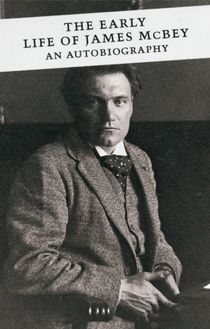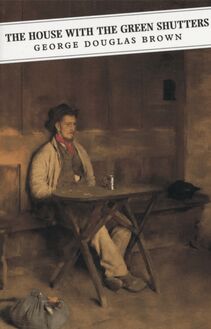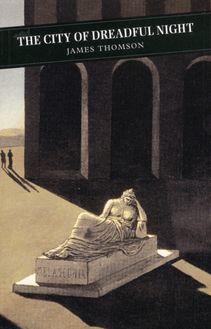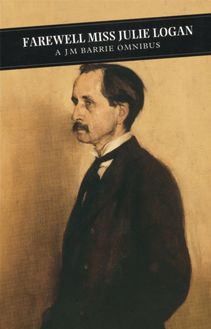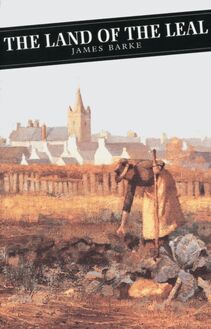-
 Univers
Univers
-
 Ebooks
Ebooks
-
 Livres audio
Livres audio
-
 Presse
Presse
-
 Podcasts
Podcasts
-
 BD
BD
-
 Documents
Documents
-
- Cours
- Révisions
- Ressources pédagogiques
- Sciences de l’éducation
- Manuels scolaires
- Langues
- Travaux de classe
- Annales de BEP
- Etudes supérieures
- Maternelle et primaire
- Fiches de lecture
- Orientation scolaire
- Méthodologie
- Corrigés de devoir
- Annales d’examens et concours
- Annales du bac
- Annales du brevet
- Rapports de stage
La lecture à portée de main
Vous pourrez modifier la taille du texte de cet ouvrage
Découvre YouScribe en t'inscrivant gratuitement
Je m'inscrisDécouvre YouScribe en t'inscrivant gratuitement
Je m'inscrisEn savoir plus
Vous pourrez modifier la taille du texte de cet ouvrage
En savoir plus

Description
Informations
| Publié par | Canongate Books |
| Date de parution | 01 juillet 2010 |
| Nombre de lectures | 0 |
| EAN13 | 9781847675903 |
| Langue | English |
Informations légales : prix de location à la page 0,0480€. Cette information est donnée uniquement à titre indicatif conformément à la législation en vigueur.
Extrait
Contents
Title Page Introduction Part One Part Two Part Three Part Four Part Five Part Six About the Author Copyright
Introduction
In Fergus Lamont Robin Jenkins is at his sharpest on themes that have long absorbed him: ambition, delusion, mission, fraudulence, snobbery, goodness and cruelty. His great creative stroke in this novel, first published in 1979, is to filter these themes through the vision of a central character and narrator who is generally preposterous, often repellent and probably crazed. The cruelties, divisions and absurdities of the wider social and moral landscape are ironically heightened by being seen through Fergus Lamont’s reflections and his mad redemptive mission. The result is an extraordinary novel, comic and serious, teasing and painful.
Since the narrator is, to an extent, an unreliable oddball, it would be as well to bear in mind one of Robin Jenkins’s central purposes as a writer. In 1955 Jenkins wrote an essay called ‘Novelist in Scotland’ in which he said this about the Scots and the writer’s task: ‘We have been a long time in acquiring our peculiarities: in spite of ourselves, they are profound, vigorous, and important; and it is the duty of the Scottish novelist to portray them.’
There is a strong, even stern sense of that duty to be clear-eyed throughout Jenkins’s work. It is all the more striking, therefore, that Jenkins chooses to register so many of our ‘peculiarities’ by way of Fergus’s squint gaze: a very odd viewpoint indeed. But that central purpose which Jenkins declared in 1955 has remained constant. Indeed, he achieves it to a masterful degree in Fergus Lamont by drawing on other qualities which he called for in that same essay. We should, he said, admit the superficial greyness of Scotland and put it boldly in the picture. We should then bring to that setting ‘comic bravado’, ‘bursts of devastating self-criticism’, ‘sardonic’ and ‘irreverent’ humour, and ‘a resolute sadness that harks back to our old incomparable ballads’. Fergus Lamont’s strange, futile life and reflections provide us with these qualities abundantly.
Readers familiar with Jenkins’s work will recognise some settings and characters akin to others which have featured in his novels before and since Fergus Lamont . But perhaps never before had he hit upon such a startling and comprehensive permutation of these elements.
The principal settings of the novel contrast with each other most strikingly. They highlight the worlds of difference which separate a people forced to share Scotland’s none too generous space. These are the working-class districts of Gantock, a town near Glasgow. Within these districts there are keenly appreciated gradations from the squalid to the precariously respectable. A great social gulf separates the poor areas from the douce homes of the burghers of the West End. It is a gulf bridged only shakily, and in the end unsuccessfully, by Fergus’s socialist teacher, Limpy Calderwood, and by his protégée, Mary Holmscroft. She is Fergus’s early schoolmate whose political crusade on behalf of the people haunts him as he pursues his quest for his own and the people’s spiritual salvation.
The working-class and middle-class worlds defy rapprochement, but at least they are locked together by the force of mutual mistrust. The world of the gentry, to which Fergus aspires, seems by comparison almost an extra-planetary zone from which rarefied representatives occasionally condescend to make inspirational appearances on earth. The lands and houses of the gentry, not very distant geographically from the Gantocks of this world, conceal lives more mysterious and remote from the rest of Scotland than the Outer Hebrides.
It is exactly appropriate that the deeply fraudulent Betty T. Shields, whom Fergus marries for status rather than money, should have conned her way into upper-class circles as a hugely popular writer of inspirational fiction for the masses. In this way she is a great asset to the ruling class, especially in wartime, just as she serves individual members of it in bed.
Even Betty’s repeated infidelities fail to disabuse Fergus of his pathetic, idealised vision of a patrician class released from material concerns into a kind of state of grace: free to dispense angelic goodwill and benevolence. Jenkins deploys the noted Scottish art of reduction here, for Fergus’s imagined noble spirits are at best dimly good-natured and craven, and callous at worst. But Fergus’s messianic fever demands that there must be some higher plane on to which he can be elevated and from which he can dispense effortless peace and wisdom for the benefit of the working-class people from whom he has risen. Other-worldliness in some form or other is to Fergus an essential guarantee of both superiority and purity. So, to complete his transformation into a spiritual luminary, Fergus turns to a second kind of remote realm, Oronsay in the Hebrides, there to purge himself like a prophet of old. By the end of a ten-year exile there he fondly imagines that he has cleansed himself of selfishness and learned to love his child-like Kirstie, who dies having failed in every attempt to get through to him that she wants to have his child.
Much of the success of the novel lies in its power to make us wonder how this strange creature, Fergus, will make out in his succession of environments: working-class Gantock, fee-paying school, the trenches and officers’ mess during the First World War, the country house, the croft.
He is strange precisely in the sense that from the age of seven he has set out to re-create himself by developing a dual persona: the aristocratic gentleman poet, and the redeeming example of courage low-born but triumphant over poverty, trial by battle, female treachery and the struggle for humility. If there is something in him akin to the ‘holy fool’, it is oddly dressed up in an officer’s tunic or tweeds. His concept of his quest is in itself comically incongruous and in his own account of how it unfolds he reveals, unconsciously as it were, many an absurdity. That is part of the delight of the book.
But the story is driven along by other factors as well which condition Fergus’s life and our view of him. Two of these are arrestingly bleak. The first is the death of Fergus’s mother when he is seven years old and the lasting significance of that death. The second develops more gradually. As Fergus the narrator, in his seventies, looks back over a period spanning two world wars, he partially comes to recognise his failure to inspire hope, courage and reconciliation. Indeed he begins to see that his quest has separated him from others. More, it has led to him rejecting others as much as his mother was once rejected. Yet he is still a snob (repelled by the sight of a once beautiful girlfriend), and his reported attempt to reconcile himself with Gantock is deeply equivocal. This failure to come to terms with himself is poignant.
Fergus’s fate, and the flawed self-consciousness which goes with it, turns on the nature of his mother’s death. Only twenty-six when she drowned herself, she was beautiful and wayward, having lived with a sick old man for four years before returning briefly to John Lamont. After her death Fergus discovers that he may be the bastard son of an earl’s son. John Lamont had been willing enough to accept her back as he has been happy to treat Fergus as his own. But these two key reconciliations are not to be. Fergus’s mother finds it hard to be caged in Gantock. When her judgmental father rejects a gesture of reconciliation from her, she makes her conclusive escape.
The bewildered and appalled little boy pledges himself to fulfil the destiny which his mother has dared to leave him as his inheritance. He adopts as his dress the only other thing she bequeaths him: a kilt, agonisingly out of place in Lomond Street. It declares his distinctiveness defiantly: he begins to set himself apart, just like his mother before him.
With Isobel Murray, I have argued elsewhere that the story can be compared fairly with Dickens’s Great Expec tations . A complementary Scottish comparison can be made with recurring stories on the theme of the ‘lad o’ pairts’: in which some brilliant boy from an impoverished background is encouraged by his teachers and others to rise to some kind of eminence. Variations on this theme are to be found elsewhere in Jenkins’s own work, including the relatively early Happy For The Child (1953) in which we already find that the price of such intellectually powered ambition is liable to be alienation from family and friends. Another not uncommon feature of this theme is that the ‘lad o’ pairts’ should fulfil quasi-religiously an obligation to do good in the world: as befitting one marked out by grace to be one of the Elect. This serves to account in part for Fergus’s almost religious espousal of his mission.
But Jenkins’s surpassing ploy here, surely, is to enliven the old theme with such a rich set of twists. Fergus has the apparent grace, i.e. the sheer good luck, to have an aristocratic father as well as brains. Or, at least, and this is enough, he supposes this to be so. The combination inspires him to try to elevate himself and then others by the dazzling power of his example, his reflected glory and noble sentiments. As to proof of his superiority, his modest but sufficiently respected talents as a poet are suitable signs of great worth; but they are not essential. Any mark of distinction, however acquired, will do the trick. For a person so convinced of inner merit, it doesn’t matter if he is unscrupulous in achieving heights for the sake of the common good.
So it is that in his efforts to transcend the confines of working-class and middle-class life in Gantock, Fergus Lamont achieves a heartlessness equivalent to the small-mindedness and dogmatism which brought about his mother’s death. In one of those moments of partial recognition, right
-
 Univers
Univers
-
 Ebooks
Ebooks
-
 Livres audio
Livres audio
-
 Presse
Presse
-
 Podcasts
Podcasts
-
 BD
BD
-
 Documents
Documents
-
Jeunesse
-
Littérature
-
Ressources professionnelles
-
Santé et bien-être
-
Savoirs
-
Education
-
Loisirs et hobbies
-
Art, musique et cinéma
-
Actualité et débat de société
-
Jeunesse
-
Littérature
-
Ressources professionnelles
-
Santé et bien-être
-
Savoirs
-
Education
-
Loisirs et hobbies
-
Art, musique et cinéma
-
Actualité et débat de société
-
Actualités
-
Lifestyle
-
Presse jeunesse
-
Presse professionnelle
-
Pratique
-
Presse sportive
-
Presse internationale
-
Culture & Médias
-
Action et Aventures
-
Science-fiction et Fantasy
-
Société
-
Jeunesse
-
Littérature
-
Ressources professionnelles
-
Santé et bien-être
-
Savoirs
-
Education
-
Loisirs et hobbies
-
Art, musique et cinéma
-
Actualité et débat de société
- Cours
- Révisions
- Ressources pédagogiques
- Sciences de l’éducation
- Manuels scolaires
- Langues
- Travaux de classe
- Annales de BEP
- Etudes supérieures
- Maternelle et primaire
- Fiches de lecture
- Orientation scolaire
- Méthodologie
- Corrigés de devoir
- Annales d’examens et concours
- Annales du bac
- Annales du brevet
- Rapports de stage







